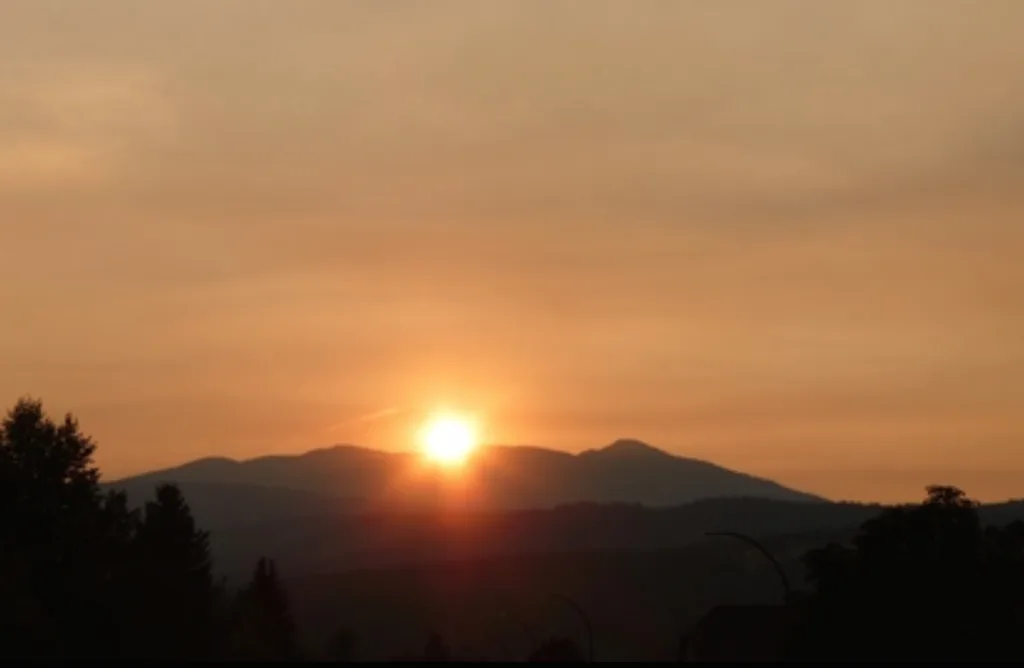
U.S. wildfire smoke creeps north, shrouds Canadian skies
The smoke from wildfires in Washington state and Oregon are continuing to cloud southern areas of B.C., creating poor air quality conditions.
Many areas in British Columbia, including Vancouver Island, Metro Vancouver, the Fraser Valley and the Okanagan, as well as the Kootenay and Boundary regions, are under a special air quality statement.
WATCH BELOW: GOES-17 SATELLITE VIEW OF RECORD U.S. FIRES
"Localized impacts in the East and West Kootenays are expected from the Doctor Creek and Talbott Creek wildfires," says Environment Canada in the statement.
Metro Vancouver issued a new advisory for elevated ground-level ozone on Wednesday. Ground-level ozone is not emitted directly into the air, but can irritate the respiratory tract and eyes. It is a colourless, odourless gas which "forms when nitrogen oxides (pollutants emitted when fuels are burned) and volatile organic compounds (emitted from solvents) react in the air in the presence of sunlight," the agency explains.
The highest levels of ground-level ozone are generally observed between mid-afternoon and early evening on summer days.
Environment Canada recommends that outdoor strenuous activities should be limited or avoided completed, especially for those with chronic underlying medical conditions or acute infections such as COVID-19.
"Exposure is particularly a concern for people with underlying conditions such as lung disease, heart disease, chronic obstructive pulmonary disease (COPD) including bronchitis and emphysema, as well as asthma, and/or diabetes, individuals with respiratory infections such as COVID-19, pregnant women and infants, children, outdoor workers (e.g. construction and agricultural workers), and older adults," Environment Canada says. "Individuals who are socially marginalized may also be at elevated risk."
MIA GORDON REPORTS ON WARMING TERMPERATURES AND SMOKE IMPACTS:
With temperatures getting up to the mid-20s in Vancouver Friday, residents are reminded to stay cool and hydrated.
"Indoor spaces with HEPA air cleaner filtration and air conditioning may offer relief from both heat and air pollution," recommends the agency.
Below is a look at some of the hazy skies observed across the province this week:






